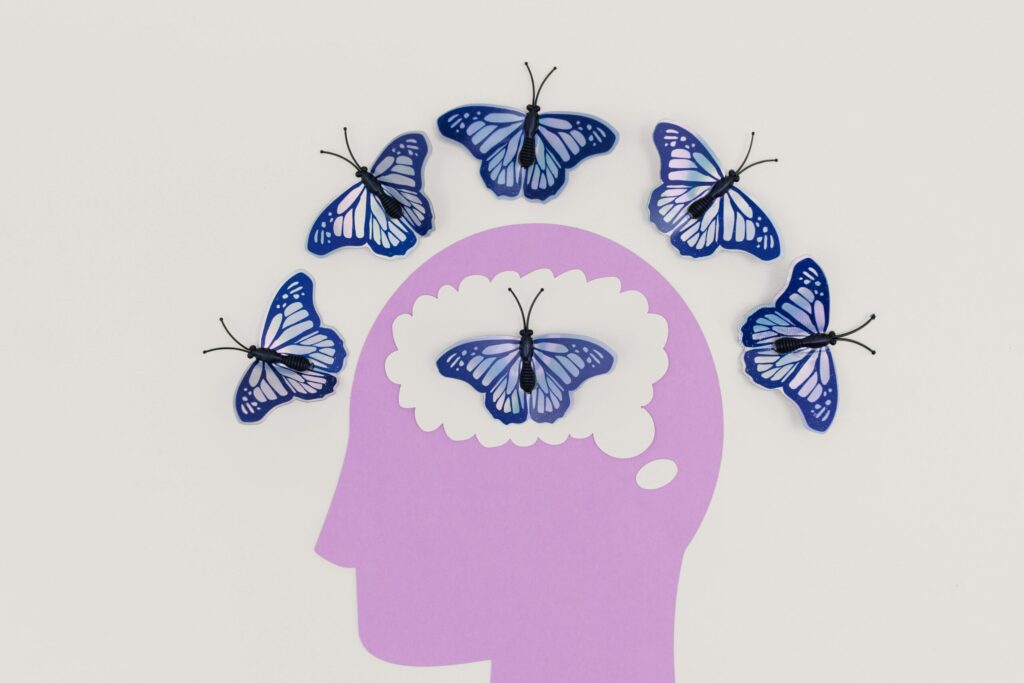How To Retrain Your Nervous System
Post date: July 22, 2024
Author: Katarina Meister, ND


We have two parts of our autonomic nervous system – the sympathetic nervous system (“Fight or Flight”) and the parasympathetic nervous system (“Rest & Digest”). When your sympathetic or parasympathetic nervous system is activated, it can trigger a cascade of events that can either adversely affect our health or benefit our health. For example, staying up late to study for a test is done via our sympathetic nervous system. This is beneficial for the short term; however, if this happened for years, it puts you in a sympathetic dominant state and may adversely affect your sleep, leading to anxiety and insomnia. Most of us are thriving off our sympathetic nervous system for years, and then eventually find it a struggle to relax, sleep, cook dinner, or find a routine. This is due to weak parasympathetic tone. To get out of sympathetic dominance, we must work consistently to tonify our parasympathetic nervous system.
Our parasympathetic nervous system is mainly controlled by the vagus nerve. The vagus nerve is the longest nerve in the autonomic nervous system and is primarily responsible for activating your body’s natural ability to rest, digest, and heal. The vagus nerve plays a role in several important bodily functions including regulating our heart rate, blood pressure, body temperature and breathing. It also impacts our digestion (digestive enzymes, bowel motility), immune regulation, our overall wellbeing and mental health. The vagus nerve directs us towards the parasympathetic nervous system when activated.
Traumatic experiences or stress can contribute to an overactive vagus nerve, putting our bodies in a sympathetic dominant state, on high alert for danger. This can lead to physical symptoms such as anxiety, mood changes, nausea, pain, and more. When the body is in an overactive sympathetic state, it can be difficult for the body to find safety to get back into the parasympathetic (rest, digest and heal).
Your health is dependent on vagal tone, aka parasympathetic tone. Gabor Mate, MD a trauma research expert, talks about how stress, trauma and a sympathetic state of mind can affect our mental health, physical health and our immune system. The effect of stress and trauma on a cellular level can disorganize the immune system and turn the body against itself leading to autoimmune disease. Read more about that here: When the Body Says No: Exploring the Stress Disease.
When we are in our parasympathetic nervous system, we feel safe. We are calm, curious, connected, compassionate, confident, courageous, and clear. Staying in our authentic self, our parasympathetic state, for as long as possible can help us regulate our nervous system.
Healing requires a balanced nervous system and for our mind, body, and spirit to feel safe. We can tone our vagus nerve through the following steps:
- Explore trauma emotional triggers: The awareness and validation of our own emotions can bring us back to a state of our authentic self or our parasympathetic nervous system. This can be done at home see The Change Triangle from Hilary Jacobs Hendel or with a licensed trauma therapist.
- Walking is a great exercise to increase your parasympathetic nervous system. You can also combine with a mindfulness meditation. For the meditation focus on each step you take and your breath. If your mind starts to wander, simply bring it back to your next step or your next breath. It is recommended to aovid intense cardio exercises as these can trigger the sympathetic nervous system.
- Meditating: Find a quiet place, where you can sit, and close your eyes – focus on your breath. Continue for 10-30 minutes or until you feel relaxed and focused. If you are new to meditation, I recommend trying a guided meditation. For more body awareness you can choose to do a progressive muscle relaxation meditation.
- Grounding: make direct skin contact with the earth. Examples include walking or standing barefoot outdoors on grass, sand, or soil. Other examples include submerging yourself in a natural body of water such as a lake or ocean.
- Singing or Humming tones the vagus nerve and can easily be done in the car or the shower.
- Minimize caffeine: Try going without caffeine, to allow your body to be back in control of your energy levels. If you insist, then try to only drink 1 cup of caffeine with your breakfast, not on an empty stomach.
- Practice sleep hygiene: start waking up with the sun and watching the sunrise. It is also just as important to avoiding screens an hour before bed.
- Taking a B-complex can heal the vagus nerve. B vitamins, notably B1, B6, and B12, play several roles in our nerve health and heal nerve damage. B vitamins are also cofactors for our neurotransmitters which affect our ability to have clarity, balance our mood and digestion. Ensure you are taking an “Active” B complex with methyl-folate and methyl-B12.
- Adaptogens, such as Ashwagandha or Rhodiola, can also be helpful to help us cope to stress by modulating our HPA-Axis and our cortisol response to stress. Measuring cortisol levels in a saliva hormone test can help to identify which adaptogens to use and the impact of dysregulated nervous system on your hormones.
Explore Related Posts:




